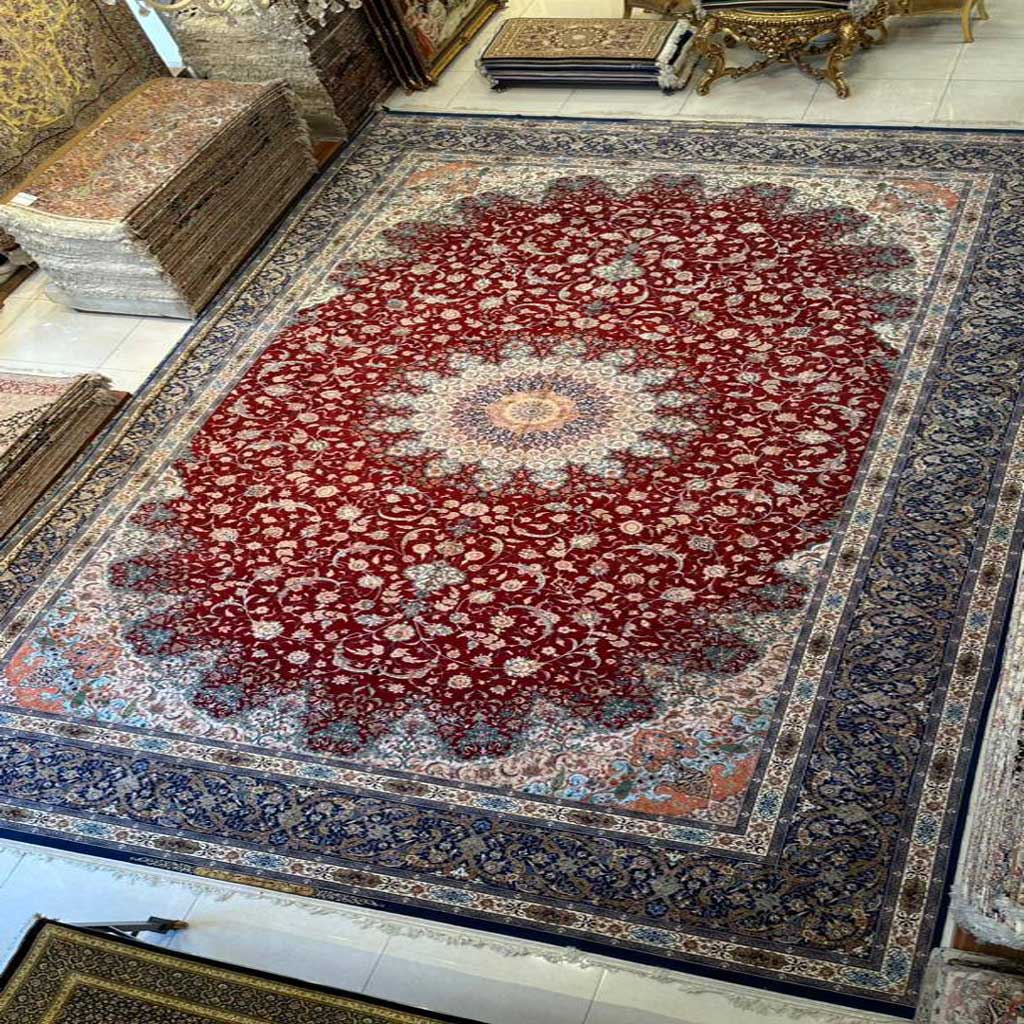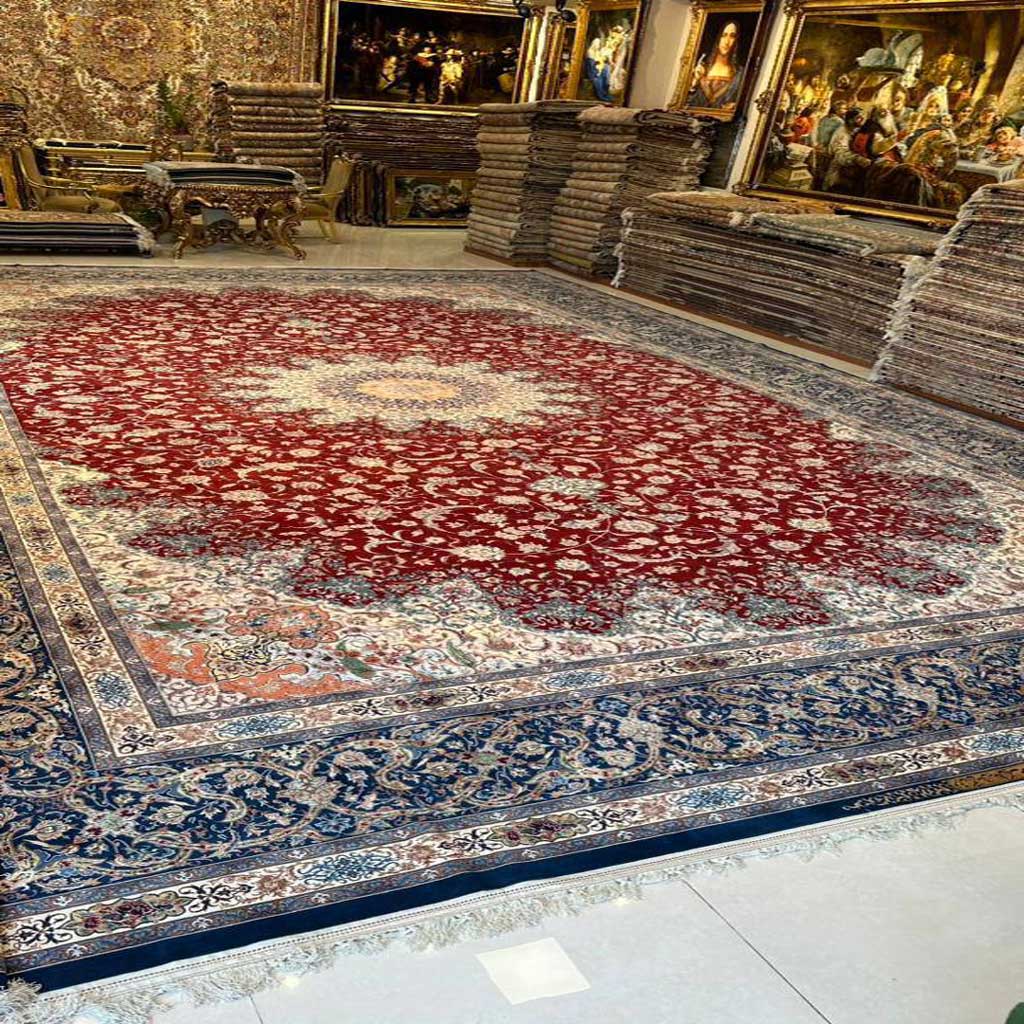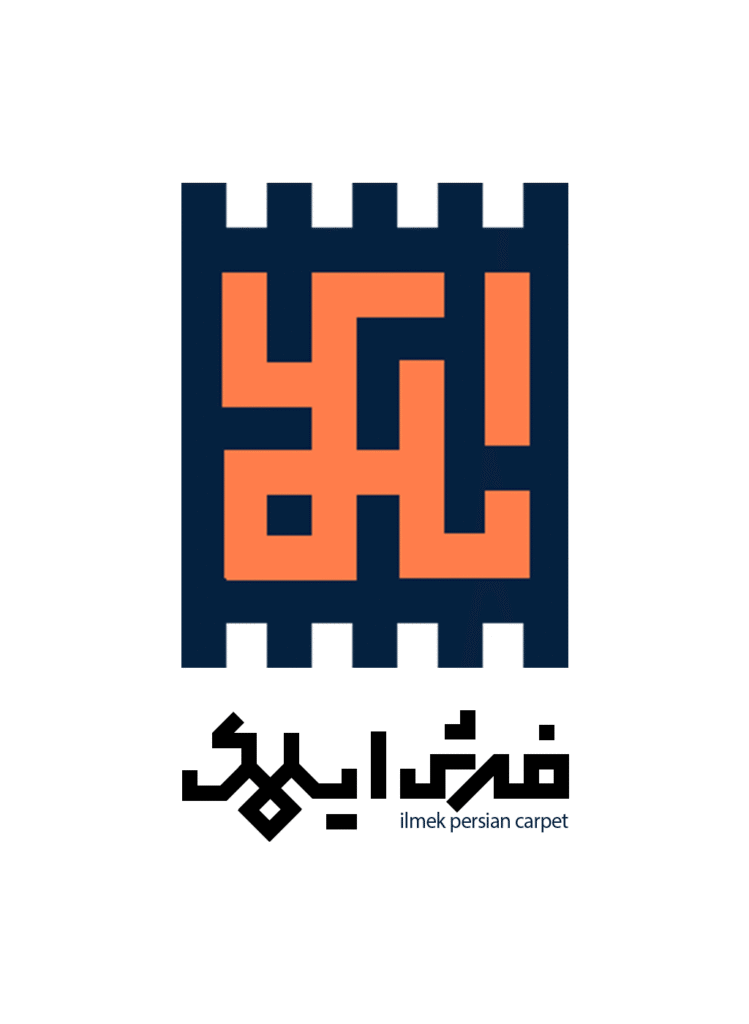Premium All-Silk Isfahan Carpet
- The Isfahan carpet is one of the most luxurious and artistic Persian rugs, known for its exceptional delicacy, designs inspired by Persian miniature art, and dense, meticulous weaving making it a distinguished choice for collectors and refined interiors.
- These carpets are handwoven in the artistic workshops of Isfahan using fine silk and soft wool.
- They feature patterns such as Shah Abbasi flowers, central medallions, and intricate arabesques in balanced tones like deep blue, ivory, and red.
Features:
- Material: 100% pure silk
- Knot density: Up to over 1,000,000 knots per square meter
- Colors: Crafted using some of the most beautiful and finest dyes
-
Size: 24 square meters
Most exquisite and sought-after Persian rugs, known for their high quality, intricate designs, and rich cultural history. These carpets originate from Isfahan, a historic city in central Iran that was once the capital of the Safavid dynasty and a major center for art, architecture, and craftsmanship.
Key Features of Isfahan Carpets
1. Materials
- Silk and wool: High-end Isfahan carpets often use silk for both the foundation and pile, or fine kork wool (from lambs) for the pile with silk warps and wefts.
- Very soft, lustrous, and durable.
2. Knot Density
- Exceptionally high, often 500,000 to over 1,000,000 knots per square meter.
- This allows for very detailed patterns and smooth curves in the design.
3. Designs
- Influenced by Persian miniature art and architecture.
- Common motifs include:
- Shah Abbasi floral motifs
- Central medallions (often representing the dome of a mosque)
- Eslimi (arabesque) patterns
- Vase and tree of life imagery
- Animals and birds, often hidden within the design
4. Color Palette
- Elegant and harmonious: deep blues, ivory, reds, greens, and beiges.
- Often features a light ivory background to highlight the delicate design.
5. Weaving Centers
- Originally woven in Isfahan city itself, particularly in neighborhoods with long artistic traditions.
- Some famous weaving families and workshops (e.g., Seirafian, Enteshar, **Haghighi**) have contributed to Isfahan carpets’ fame.
Historical Context
- During the Safavid dynasty (1501–1736), especially under Shah Abbas I, Isfahan became the cultural capital of Persia. Carpet weaving flourished alongside architecture and miniature painting, which greatly influenced the style of the carpets. After some decline during periods of invasion and instability, Isfahan carpets saw a revival in the 20th century, with master weavers recreating and refining classical designs.
Why They’re Valuable?
- Artistry: They’re not just rugs they’re pieces of fine art.
- Durability: A well-maintained Isfahan carpet can last generations.
- Collector’s Item: Older or signature pieces from famous workshops can be worth tens of thousands of dollars or more.




Reviews
There are no reviews yet.